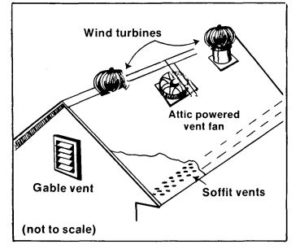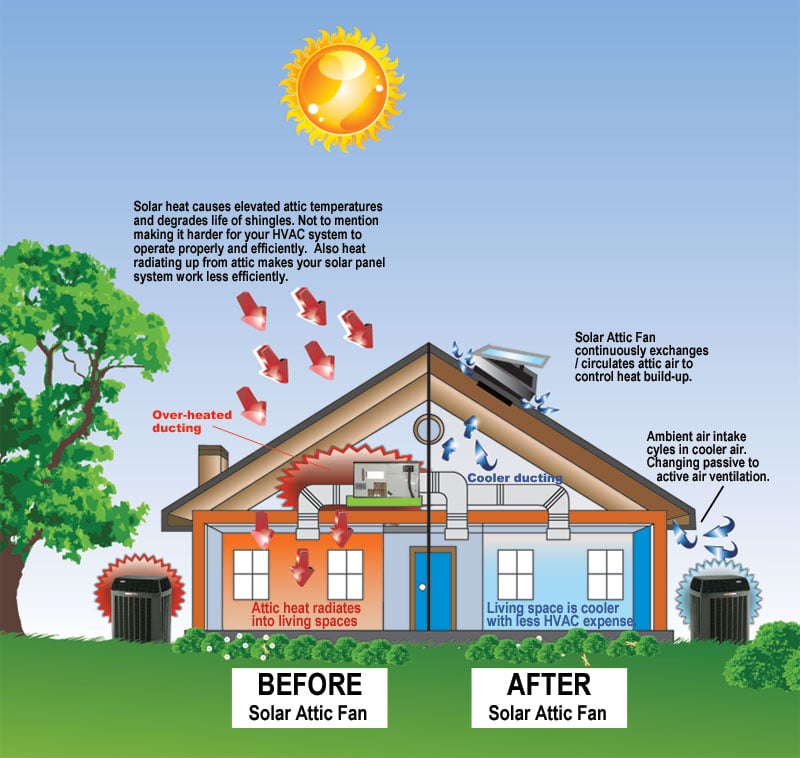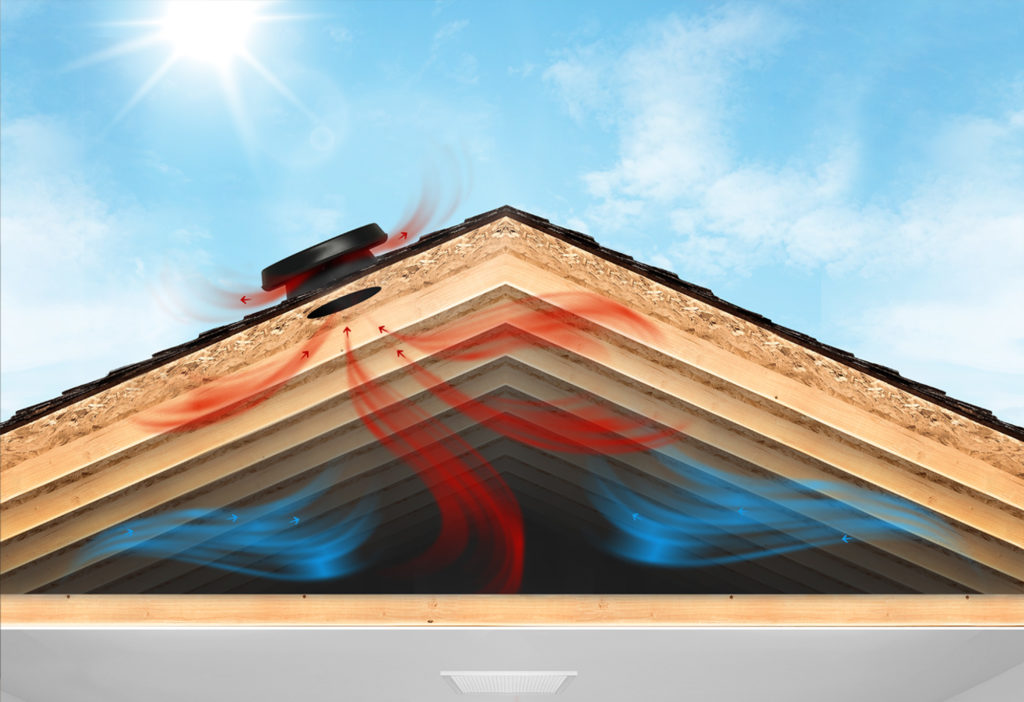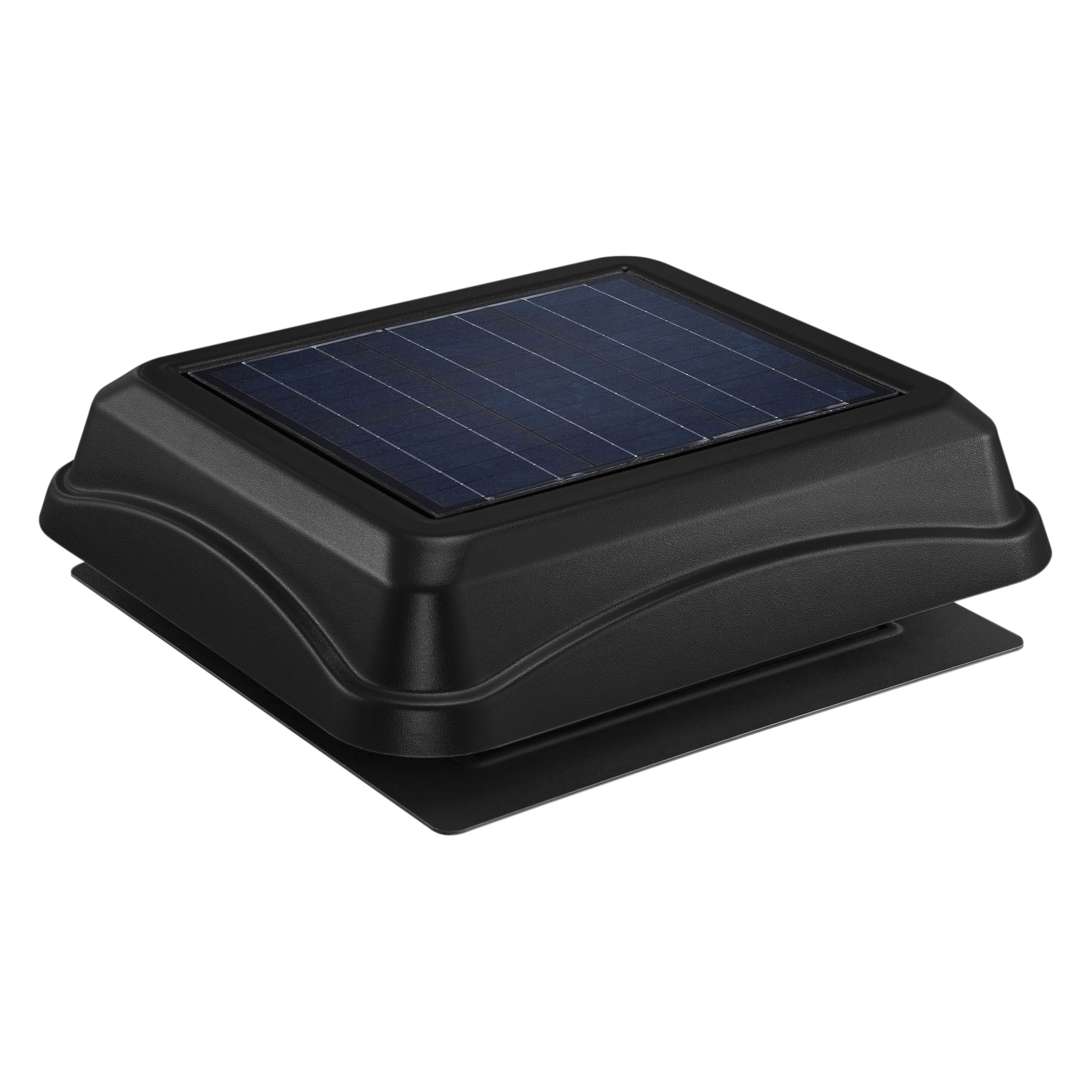Proper location of roof intake and outlet venting prevents attic condensation ice dam leaks attic mold roof structure damage how to correct improper or inadequate attic or under roof ventilation in buildings detecting and correcting attic condensation and preventing ice dam leaks in buildings how to correct improper or inadequate attic or under roof ventilation in buildings.
How to place 2 solar attic vents.
Soffit vents are one of the most popular intake vent styles.
To determine the number of cubic feet per minute needed for a power vent fan multiply the number of square feet in your attic by 0 7.
A solar powered roof vent can help your home s passive ventilation system remove hot air from the attic while adding absolutely nothing to your home s energy costs.
But they re much easier to install since no wiring is needed.
You will probably need two solar attic fans to get the results you want.
They are easy to install under the roof s overhang which is known as the soffit are generally hidden from sight and provide excellent protection from weather outdoor debris and pests while still allowing air to flow into the attic.
Measure and cut a 2x4 brace.
Place all the roof vents on the same side of the roof.
Solar powered attic vent fans usually don t move as many cubic feet of air per minute cfm as hardwired fans.
With the solar panel in place the fan is ready to be installed in the attic.
Continuous or individual soffits.
That means you will need to double up your investment in this area.
If your roof peak runs parallel to the street put them on the backside where they ll be less prominent.
Attic ventilation works on the principle that heated air naturally rises primarily utilizing two types of vents.
Intake vents located at the lowest part of the roof under the eaves allow cool.
Because solar attic fans operate with a lower power output they are unable to move as much air as some of the other options that are available.










